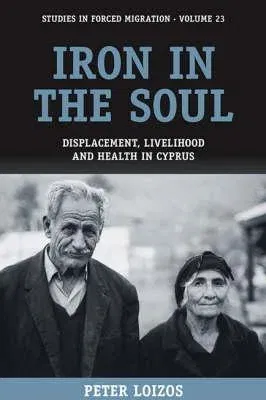Peter Loizos
(Author)Iron in the Soul: Displacement, Livelihood and Health in CyprusHardcover, 1 June 2008

Qty
1
Turbo
Ships in 2 - 3 days
Only 1 left
Free Delivery
Cash on Delivery
15 Days
Free Returns
Secure Checkout

Part of Series
Forced Migration
Part of Series
Forced Migration, 23
Part of Series
Studies in Forced Migration
Print Length
224 pages
Language
English
Publisher
Berghahn Books
Date Published
1 Jun 2008
ISBN-10
1845454448
ISBN-13
9781845454449
Description
Product Details
Author:
Book Format:
Hardcover
Country of Origin:
US
Date Published:
1 June 2008
Dimensions:
22.86 x
15.24 x
1.42 cm
ISBN-10:
1845454448
ISBN-13:
9781845454449
Language:
English
Location:
New York, NY
Pages:
224
Publisher:
Weight:
471.74 gm